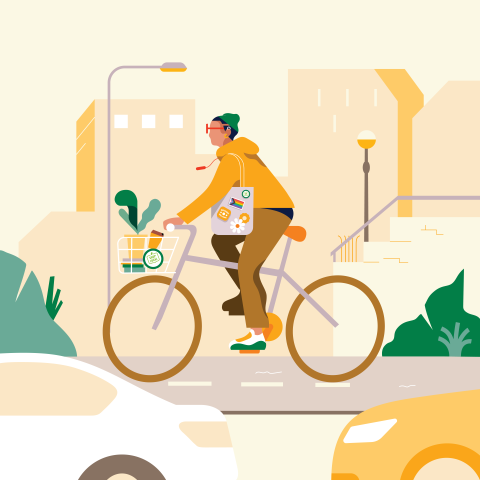9 per cent of the population

A prosperous, confident segment who believe the system broadly works as it is and who trust experts to deliver continued progress. They have a strong belief in individual agency which can make them less empathetic to those who are struggling. Institutionally trusting, they maintain faith in democratic processes and have a strong information-centric way of engaging with issues.
“All the politicians are short- term gain thinking about their votes, not about the future of the country…but in order to fix this country, I think it's got to be a long plan.”
Jonathan
“Barack Obama, we all know he is the bee's knees.”
Denise
Key words
Secure, internationally-minded, institutional, trusting, optimistic, liberal, compromising, meritocratic, comfortable.
What they worry about
Global instability and threats to liberal democracy, climate change, Brexit's long-term consequences, rise of populism and political extremism, economic inequality, the difficulty of doing business in the UK and Britain’s global competitiveness.
Where you might find them
In affluent suburbs and commuter towns; working professional jobs with hybrid arrangements; attending cultural events such as literary festivals or the theatre; in constituencies such as Winchester, St Albans and Twickenham.
How they get their news
Conventional broadsheets and magazines, BBC, the Financial Times, and other mainstream outlets, political podcasts such as Political Currency, longer-form analysis from trusted journalists and commentators such as Nick Robinson. They dislike news information that comes across as too partisan or too tabloid-y.
Learn more about Established Liberals

Simon
Simon lives in Godalming in a house he and his wife bought ten years ago, and works as an actuary for a firm in the City. While he could work from home most days, he enjoys the rhythm of commuting into London - listening to the Political Currency podcast or catching up on The Times app during his train journey. When he does work from home, he has developed a ritual of pouring a glass of wine as he wraps up emails in the evening, a small pleasure that marks the transition from professional to personal time.
Simon feels genuinely fortunate about how his life has turned out - the security of homeownership, interesting work that pays well. His success feels both earned and slightly precarious to him—he knows he has worked hard, but he is also aware that timing and circumstance played their part. This awareness makes him sympathetic to calls for public spending on education and healthcare, though he is sceptical of proposals that seem to punish success or dismantle systems that have served him well.
Simon is confident that Britain, despite its current challenges, remains a fundamentally decent place where hard work and good judgment are rewarded. Still, he is increasingly troubled by signs that the social fabric might be fraying. The rise of Reform UK baffles him, and he is worried that none of the parties he has voted for before seem to know how to stop that. He also notices more graffiti on his tube carriage these days, and people brazenly jumping barriers without paying fares. He sees himself as open-minded on social issues, but when his children come back from university it sometimes feels like they are talking a different language, and he struggles to keep up with all the new terminology they are using to describe prejudices in society.
Simon subscribes to both The Times and Financial Times, often reading the paper over his Saturday morning flat white. Simon deliberately avoids getting drawn into social media debates, viewing Twitter arguments as the opposite of the good debate. When colleagues forward him articles from less established outlets, he finds himself automatically checking whether the same story appears in mainstream sources before taking it seriously.
Simon's pride in Britain is tied to his sense of the country as a stabilising force in an increasingly chaotic world - he was genuinely moved when neighbours offered spare rooms to Ukrainian refugees, seeing it as evidence of British decency in action. Yet he's troubled by the polarisation he sees creeping into public discourse, feeling that both the far-left and far-right threaten the moderate consensus that has underpinned his comfortable life. He believes most problems can be solved through careful policy-making and goodwill, though he's beginning to wonder whether that optimism might be naive in an age of social media and populist politics.
Explore the other Segments:





